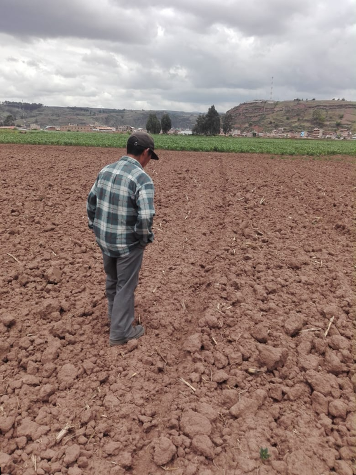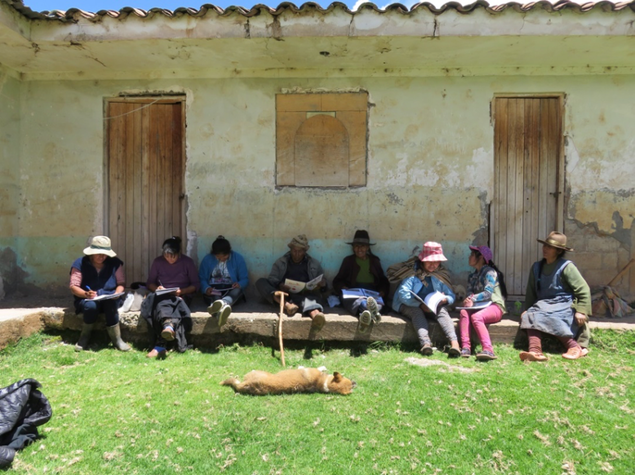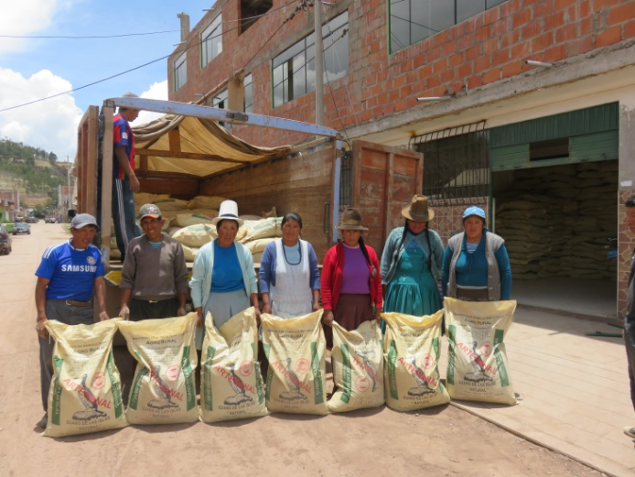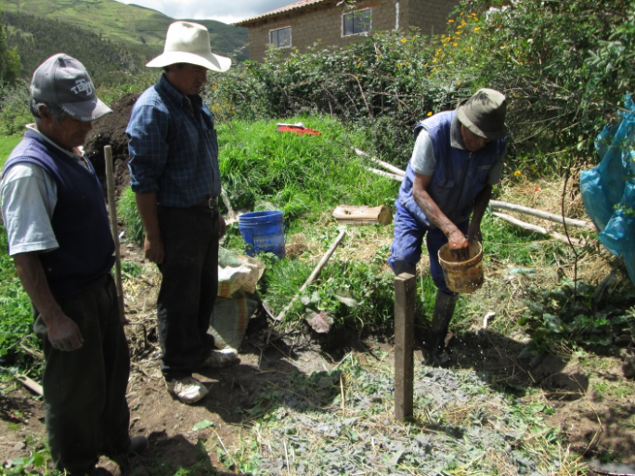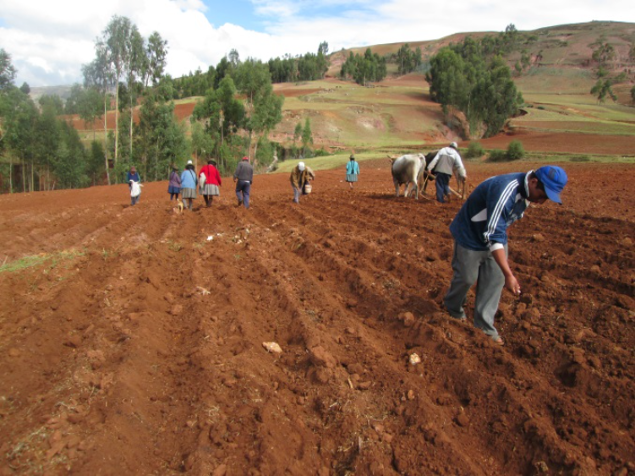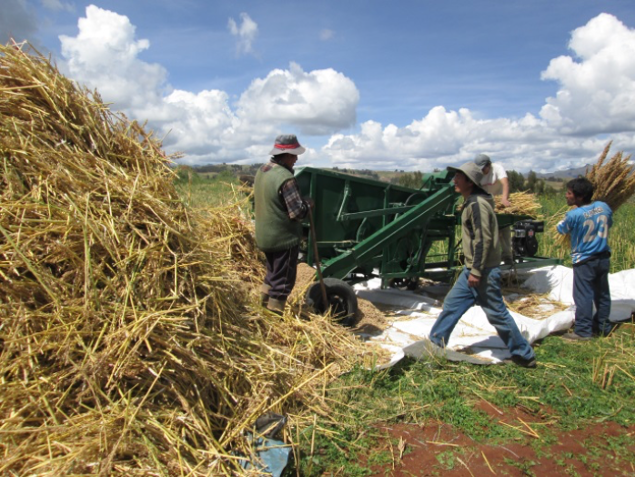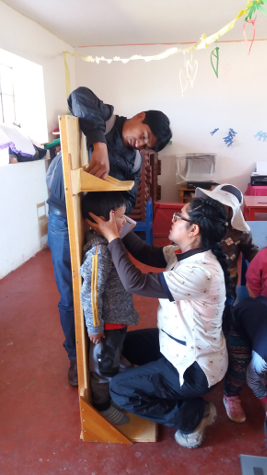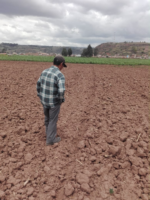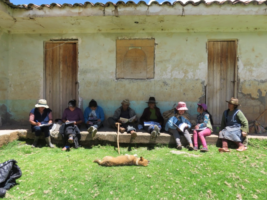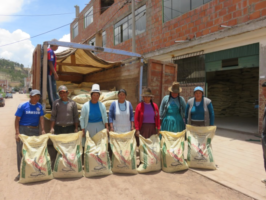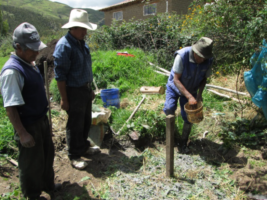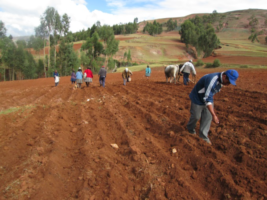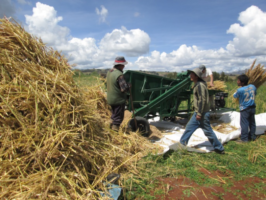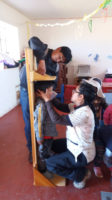Strengthening of Andean farmer communities and their representative bodies in the Anta province (Cusco) through sustainable and innovative agricultural practices
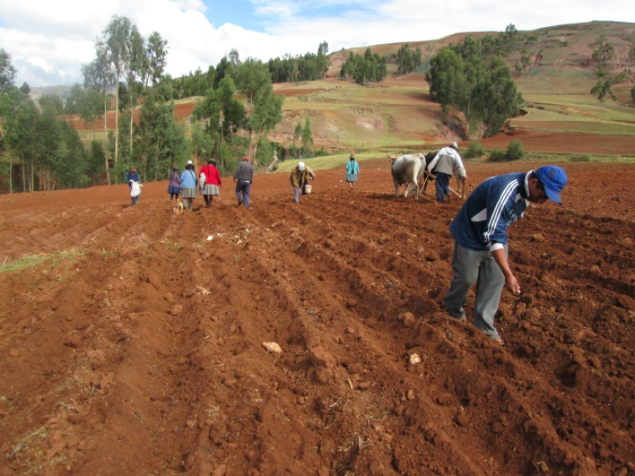
Context:
In the Anta province (Peru), agriculture is the major source of income for the inhabitants. Crops are mainly maize, oats, potatoes and quinoa developed on a small scale. There is almost no irrigation in the area and agriculture suffers from climate changes. Other problems include: low productivity, high costs of production, small volumes traded (usually from individuals), heterogeneity of the products, technological deficiencies in the management of post-harvest products, lack of information on markets and prices, weak organization of farmers and no added value in products.
Population migrates due to lack of employment opportunities, low profitability of the agricultural sector, the almost no development in the agro-industrial sector and for studies. Usually, men leave the house and women assume farm work in addition to domestic work. The average household income is less than 100 € per month and family. Nearly half of the population suffers from chronic malnutrition and children mostly suffer from respiratory system diseases and parasitic infection, skin and digestive system illness.
Objective:
This project will be implemented by ICU (Istituto per la Cooperazione Universitaria onlus). It aims to improve socio economic conditions of the farmers in the Anta province through the introduction of innovative and environmentally sustainable practices, local authorities’ capacity building and involvement, and new paths of commercialization.
Activities:
A first component of the project will aim to improve the adaptation of local farmers to the climate change phenomena through the implementation of innovations (including solid rain), the diversification of production (quinoa, tarwi) and promotion of organic certification.
Entrepreneurial approach will be fostered in local associations and cooperatives through supporting the creation of a network with other successful businesses in the country. Negotiation skills will be improved and direct contact with agro-export companies fostered.
The participation of women will be promoted in all the activities. Building of greenhouses for vegetable production managed by women will be supported in order to give them an economic independence and improve food security & availability in the area. Moreover, all the children less than 5 years old and pregnant or breastfeeding mothers will pass a nutritional evaluation. 3 training sessions on balanced nutrition will be provided in each district. Knowledge of women on reproductive health topics will be improved thanks to 5 seminars held by a doctor and a social worker.
Finally, services given by public institutions to farmers in the area will be improved thanks to better agro-climate information (5 climate stations will be bought and technical assistance will be given to public officers) and its free diffusion in the territory via Internet.
A video testimonial of the beneficiaries is available here.
Final report summary (December 2021):
Thanks to the project, approximately 230 farmers from 27 local associations received agricultural training to develop an organic production. Among them, 138 farmers had their land certified in Good Agricultural Practices (GAP). The COOPAINCA-ANTA cooperative has now the capacity to represent their members, accept new ones, promote organic production and agroecology techniques in the area and market their products. The cooperative had 120 active members at the end of the project which represents a 60% increase compared to the 75 members at the beginning of the project. Its capacities were strengthened through several training sessions (agroecology techniques, management, marketing and climate change adaptation) and the formalization of the cooperative procedures. To develop its market, the Cooperative signed 4 sales contracts, had 10 meetings with local quinoa export companies and participated in 5 fairs of Andean products. Climate change adaptation pilot experiences were implemented through 2 initiatives: tarwi production and solid rain.
During the 3-year project duration, an average of 31 ha were sowed with tarwi by 72 beneficiaries, each year. Approximately 3 ha were also sowed with solid rain to test it with different crops (maize, quinoa, fava beans, potato, etc.). A study on these tests was published in October 2020, recommending to use solid rain on sandy soils for example, as it works better. The productivity for quinoa and tarwi increased and, thanks to the GAP, the farmers achieved better prices for their products.
Thanks to the 25 greenhouses installed by the project, women managed to reach some economic independence, a higher self-esteem and improve food security and food availability in the area. Representing 4,500 m2, these greenhouses enabled them to start producing vegetables (tomato, carrot, lettuce, cabbage, cauliflower, etc.), thus generating more than 20,000 euros sales over 2020. A total of 51 training sessions were held on organic vegetable production. This was new in this area, traditionally only producing cereals. 26 training sessions on nutrition and 5 seminars on Sexual and Reproductive Health were organized as well.
Improved agro-climate information is also more broadly available in the area, for climate change adaptation, thanks to 4 climate stations with telemetry installed. 3 focus groups with farmer associations and local institutions were organized to understand the challenges and needs in agro-climate information. 26 public officers were trained on the use of the data collected through the weather stations and an agreement was signed in October 2019 between Aprodes and INIA on the stations’ maintenance, data use and diffusion. Weather forecasts, now available through radio broadcasts and the WeatherLink application, have important beneficial effects for the crops of the farmers in the area.

